US judge orders Trump administration to turn over documents on Muslim travel ban
A US federal judge has ordered the Trump administration to turn over communications from Rudolph Giuliani and other advisers on the president’s controversial travel ban on citizens of several Muslim nations in a bid to prove that the ban was inspired by hatred of Muslims.
Giuliani was a key figure behind the so-called Muslim ban and judges across the US have cited statements made by the former New York mayor and close Trump ally in their rulings to freeze the president’s travel ban, specifically pointing to Giuliani’s remarks during a televised interview that suggested he helped Trump craft a “legal way” to bar Muslims from entering the US, The Washington Post reported Saturday.
In a January interview with Fox News, Giuliani stated, “So when [he] first announced it, he said, ‘Muslim ban.’ He called me up. He said, ‘Put a commission together. Show me the right way to do it legally.’ ”
“And what we did was, we focused on, instead of religion, danger — the areas of the world that create danger for us, which is a factual basis, not a religious basis,” Giuliani further claimed at the time.
He then added: “Perfectly legal, perfectly sensible. And that's what the ban is based on. It's not based on religion. It's based on places where there are substantial evidence that people are sending terrorists into our country.”

According to the report, US District Judge Victoria Roberts in the state of Michigan ordered the Trump administration to turn over a memo that Giuliani crafted, along with all “documents or communications” about the travel ban from him and several other Trump advisers, including Attorney General Jeff Sessions, White House Chief Strategist Stephen Bannon and senior adviser Stephen Miller, during the period just prior to the election and before they were in their current official roles.
US judges, the report added, have also pointed to Miller’s remarks in ordering the freeze on the latest version of the administration’s Muslim ban.
“We believe these documents will show exactly how the Muslim ban that Donald Trump called for on the campaign trail turned into the executive order he issued a week after taking office,” said a statement issued by Miriam Aukerman, senior staff attorney at Michigan branch of rights group, the American Civil Liberties Union (ACLU) as quoted in the report.
Read More:
It added, “If the administration now still refuses to turn over these papers, the question will be: What is it trying to hide?”
The case in Michigan, however, is not one of the two that have put Trump’s latest travel ban against Muslims on hold, the report underlined, noting that it is proceeding at a slower pace and could be significantly affected by rulings on the case elsewhere.
Federal judges have blocked Trump’s revised travel ban, citing extensively the president’s own words — and those of his close advisers — as reasons they were convinced to do so. The comments, the judges insisted, provide strong evidence that the directive was intended to disfavor Muslims and thus violates the Establishment Clause of the First Amendment.

A three-judge panel with the US Court of Appeals for the 9th Circuit Court is scheduled to hear arguments in one of those cases on Monday while the US Court of Appeals for the 4th Circuit heard arguments this week.
A panel of 13 judges on the US Appeals Court in Richmond, Virginia reconvened last Monday to hear the Trump administration’s arguments in defense of the travel ban, presented by Acting US Solicitor General Jeffrey Wall.
The judges questioned Wall about Trump's campaign pledges of a “total and complete shutdown” of Muslims entering the US.
It was based on the same remarks that federal judges in Maryland and Hawaii ruled against the implementation of the ban in February and its revised version in March.
While the Maryland injunction only applies to rejecting visa applications from Iran, Syria, Iraq, Libya, Yemen and Sudan for 90 days, the Hawaii ruling goes further and blocks Trump’s order to halt all refugee admissions for the same period.
CNN journalists abducted by Israel while reporting on damage from Iranian strikes
Iran denies attacks on Oman as it warns of US-Israeli ‘false-flag’ ops
Iran knows where Netanyahu convenes his meetings: Ex-IRGC chief
‘Law of jungle’: China says Israeli-US aggression against Iran must stop
Iran says committed to regional security; retaliatory attacks only target Israel, US assets
'Blatant war crime': Iran denounces US-Israel strikes on Gandhi hospital in Tehran
IRGC spox: 650 casualties for US military in two days as Iran missiles force aircraft carrier to fle
Tehran warns of false-flag operations, says Israel ‘undoubtedly’ seeking to widen war


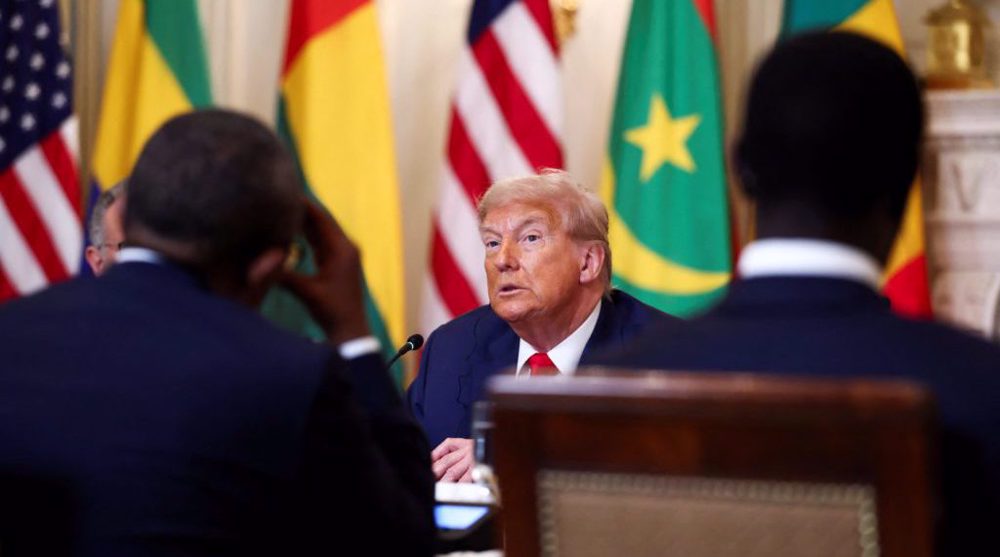
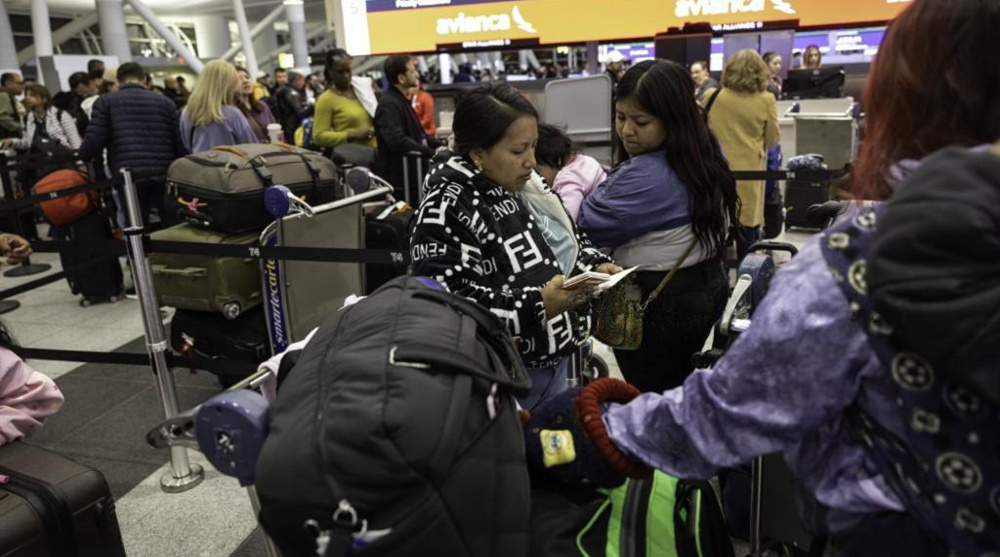
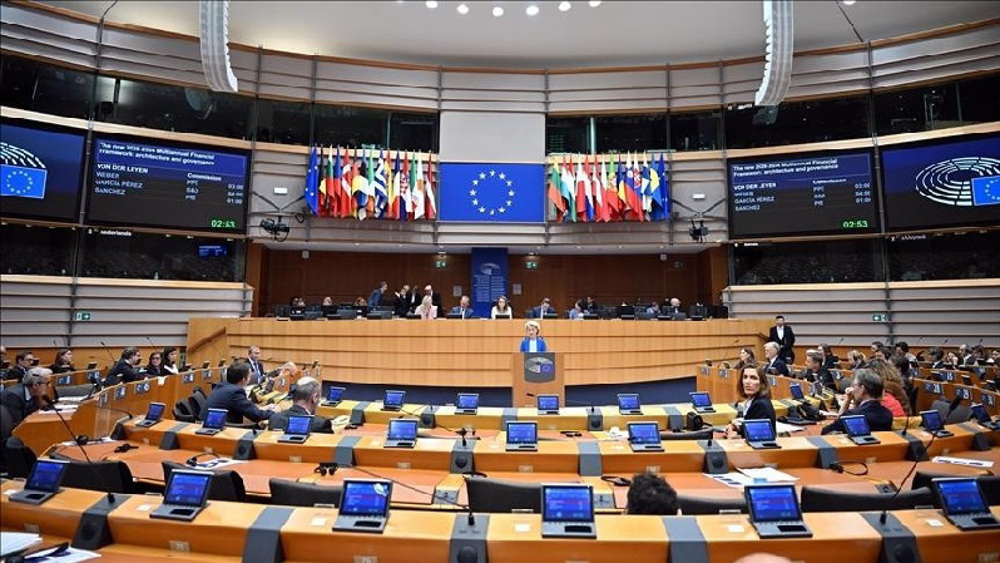




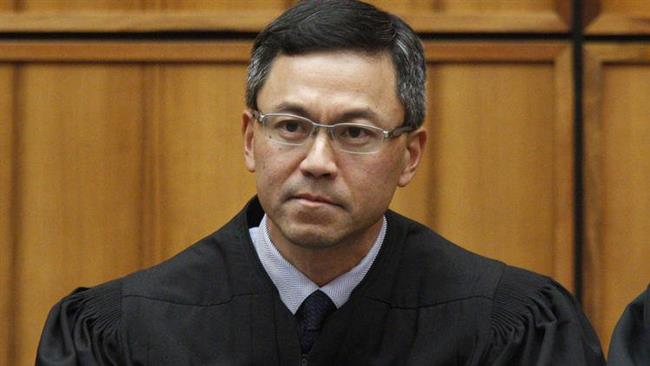
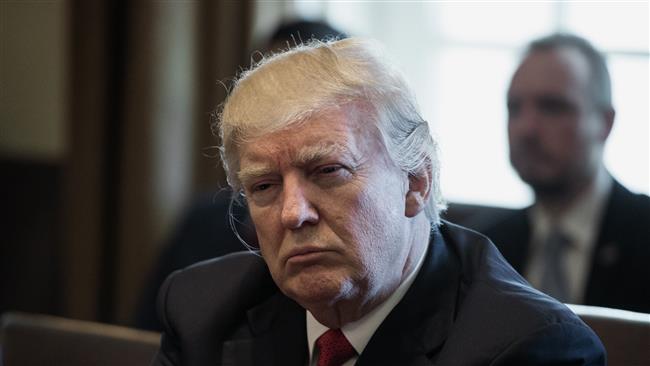

 This makes it easy to access the Press TV website
This makes it easy to access the Press TV website